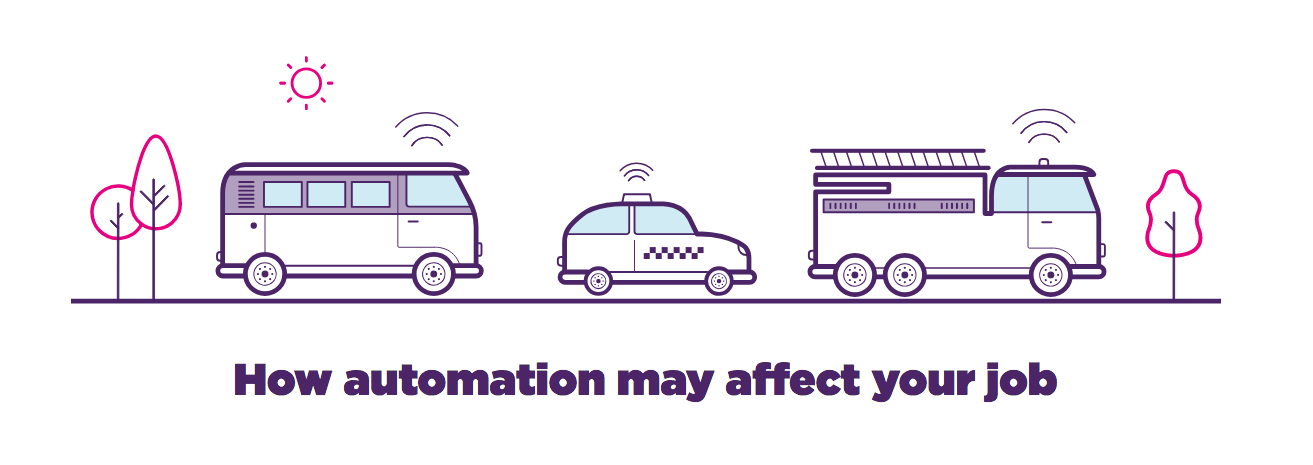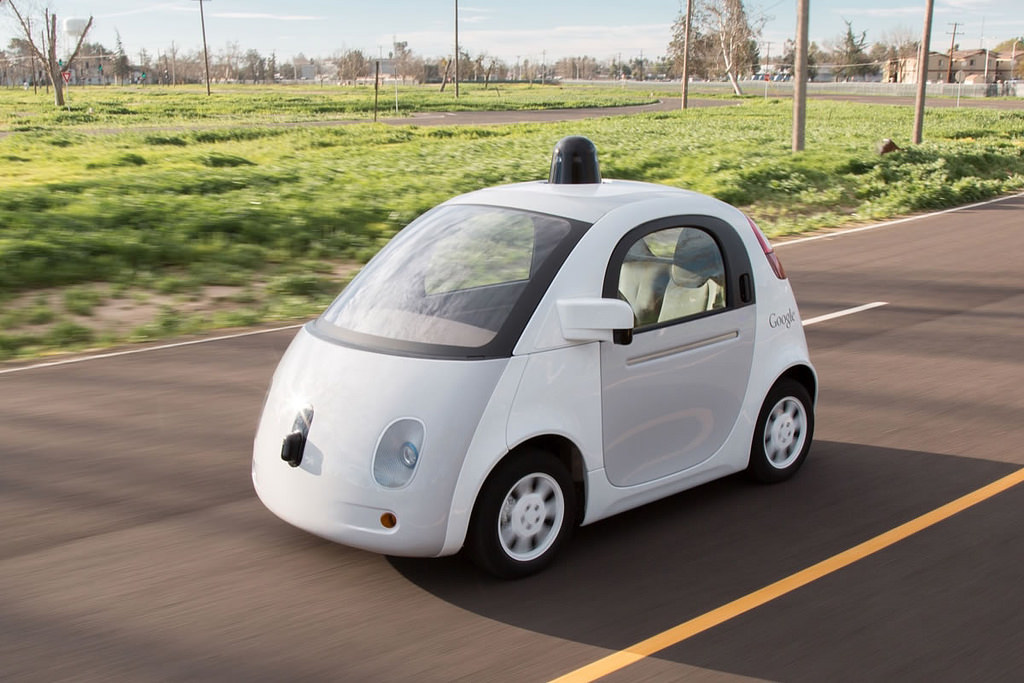-
MoneySuperMarket analysis shows that over one million driving jobs could be replaced by the advent of driverless vehicles1
-
Automation could remove £24 billion worth of annual wages from the economy in the short term2
Human drivers on the road could soon become obsolete, according to research from the UK’s leading price comparison site, MoneySuperMarket.
Driverless vehicles are growing in capability and popular among firms that traditionally employ large numbers of drivers, including food delivery and bus companies. Automation of driving jobs could trigger large-scale redundancies by as early as 20203. Positions at risk
Positions at risk
Although few UK motoring jobs have been automated to date, as many as 1.2 million face a 67 per cent or higher probability of automation1 – representing up to £23.9 billion in annual salaries2.
Among professional drivers, only driving instructors have little to fear, with the 29,000 employed in the UK having only a 13 per cent chance of replacement with a machine1. Other careers might not be as lucky, such as:
- Food delivery drivers – The takeaway delivery industry is likely to see replacements across the board, with a 98 per cent chance of automation1.
- Waste disposal workers – Binmen face a 93 per cent likelihood of having their roles replaced by a machine1. Volvo showcased a prototype bin lorry that uses drones to identify nearby bins4, although this wouldn’t completely replace the need for human workers.
- Forklift drivers – Automated forklifts are already commercially available, meaning that 88,000 workers employed in the UK may be working on borrowed time.
- Bus drivers – Mobility firm Navya tested driverless buses in East London and Heathrow Airport in 20175. Drivers can expect an 89 per cent chance of being replaced in the years to come1.
- Taxi drivers – As with bus drivers, there have been moves to automate private transport services. Notably, Addison Lee has stated that the company intends to have automated vehicles deployed in London by 20216. In Tokyo, meanwhile, an autonomous taxi service began operation in August, transporting passengers along a set route7.
Emergency services
Despite advances in driverless technology, jobs in the emergency services are less at risk, with police facing only a 10 per cent chance of full-scale replacement, ambulance drivers 25 per cent, and fire engine operators 42 per cent1. It is likely that their additional skills will help protect their careers.
Insurance changes
Currently, those insuring their vehicles exclusively for work pay average premiums of £455 annually, while other drivers pay £7028. Despite the lower cost, those driving for work still represent 25 per cent of all accidents on the roads9 – disproportionately high considering they only represent seven per cent of drivers8.
Tom Flack, Editor-in-Chief at MoneySuperMarket, commented: “Automation will bring massive changes across the whole of society and those who drive for a living may be among the first to feel its effects. Tests of driverless vehicles are well-advanced and are soon to be on the roads – with future positions in commercial usage already identified.
If businesses see an opportunity to save money by making drivers redundant, they are likely to grab it – that’s the nature of competition. We can only hope that automation brings with it fresh employment opportunities for those whose existing roles disappear.”
For more information on how driverless cars are likely to affect different industries, take a look at the full study on the MoneySuperMarket website.
References:
1https://willrobotstakemyjob.
2Figures derived from Indeed, PayScale and Glassdoor using averages for each position to create an overall average, then multiplied by the number of jobs at risk.
3 https://www.techemergence.com/
4https://www.theguardian.com/
5http://uk.businessinsider.
8Data derived from unique MoneySuperMarket data on insurance premiums for drivers by usage.
About MoneySuperMarket:
MoneySuperMarket is a price comparison website. They provide free, online tools to help people manage, save and grow their money, by enabling them to compare and switch Insurance, Money and Home Services products from more than 980 providers across 44 different channels.
MoneySuperMarket is part of the Moneysupermarket Group PLC, an established member of the FTSE 250 index. In 2017, they say that they helped nearly eight million families save an estimated £2bn on their household bills, including five million people who saved money on their insurance, two million who got a better deal on their finances and over half a million households that switched their energy supplier.
Moneysupermarket.com Limited is an appointed representative of Moneysupermarket.com Financial Group Limited, which is authorised and regulated by the Financial Conduct Authority (FCA FRN 303190) for the insurance, mortgage and consumer credit products it offers. For energy products, MoneySuperMarket is accredited under the Ofgem Confidence Code.
